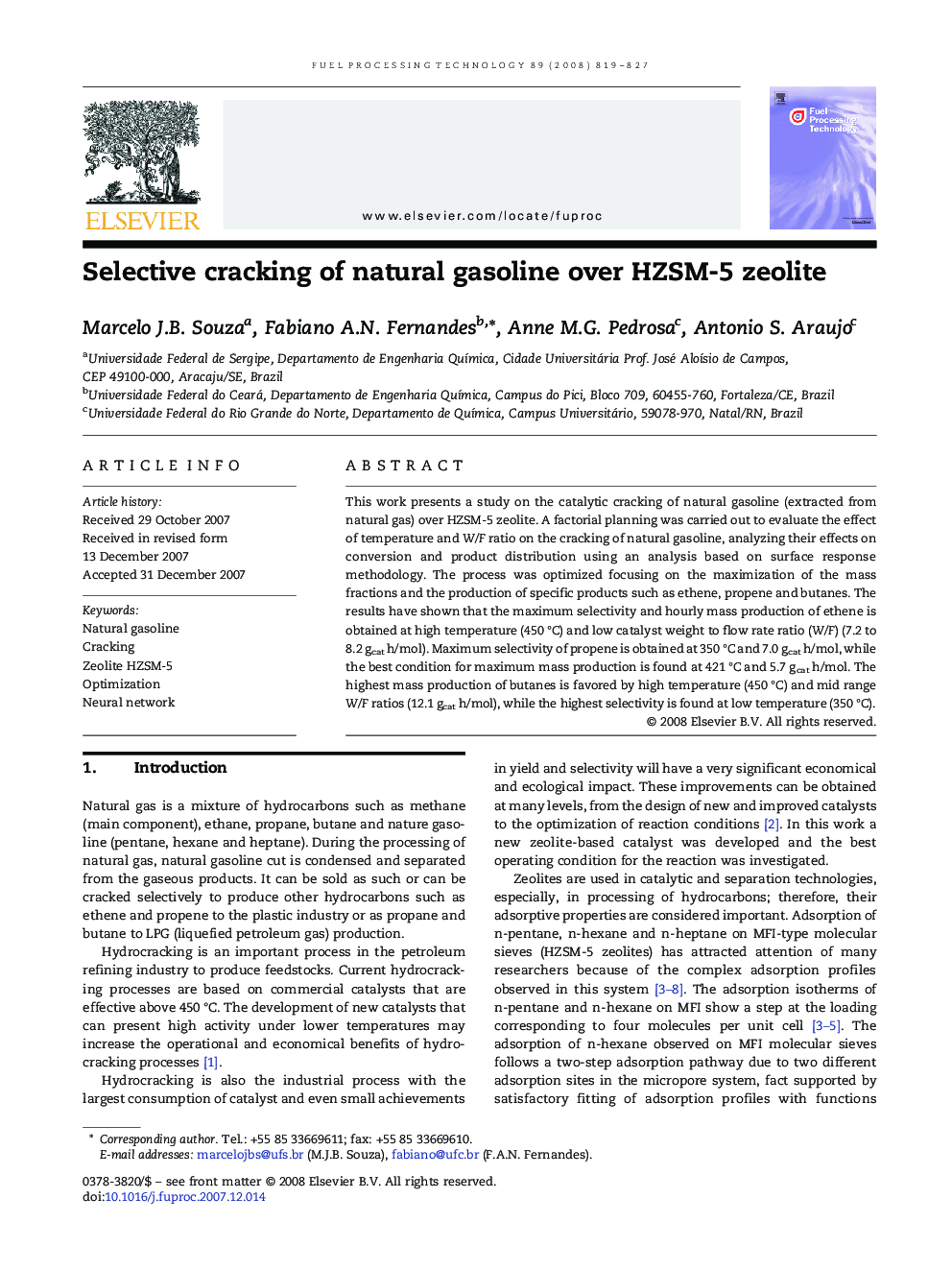| Article ID | Journal | Published Year | Pages | File Type |
|---|---|---|---|---|
| 211508 | Fuel Processing Technology | 2008 | 9 Pages |
This work presents a study on the catalytic cracking of natural gasoline (extracted from natural gas) over HZSM-5 zeolite. A factorial planning was carried out to evaluate the effect of temperature and W/F ratio on the cracking of natural gasoline, analyzing their effects on conversion and product distribution using an analysis based on surface response methodology. The process was optimized focusing on the maximization of the mass fractions and the production of specific products such as ethene, propene and butanes. The results have shown that the maximum selectivity and hourly mass production of ethene is obtained at high temperature (450 °C) and low catalyst weight to flow rate ratio (W/F) (7.2 to 8.2 gcat h/mol). Maximum selectivity of propene is obtained at 350 °C and 7.0 gcat h/mol, while the best condition for maximum mass production is found at 421 °C and 5.7 gcat h/mol. The highest mass production of butanes is favored by high temperature (450 °C) and mid range W/F ratios (12.1 gcat h/mol), while the highest selectivity is found at low temperature (350 °C).
